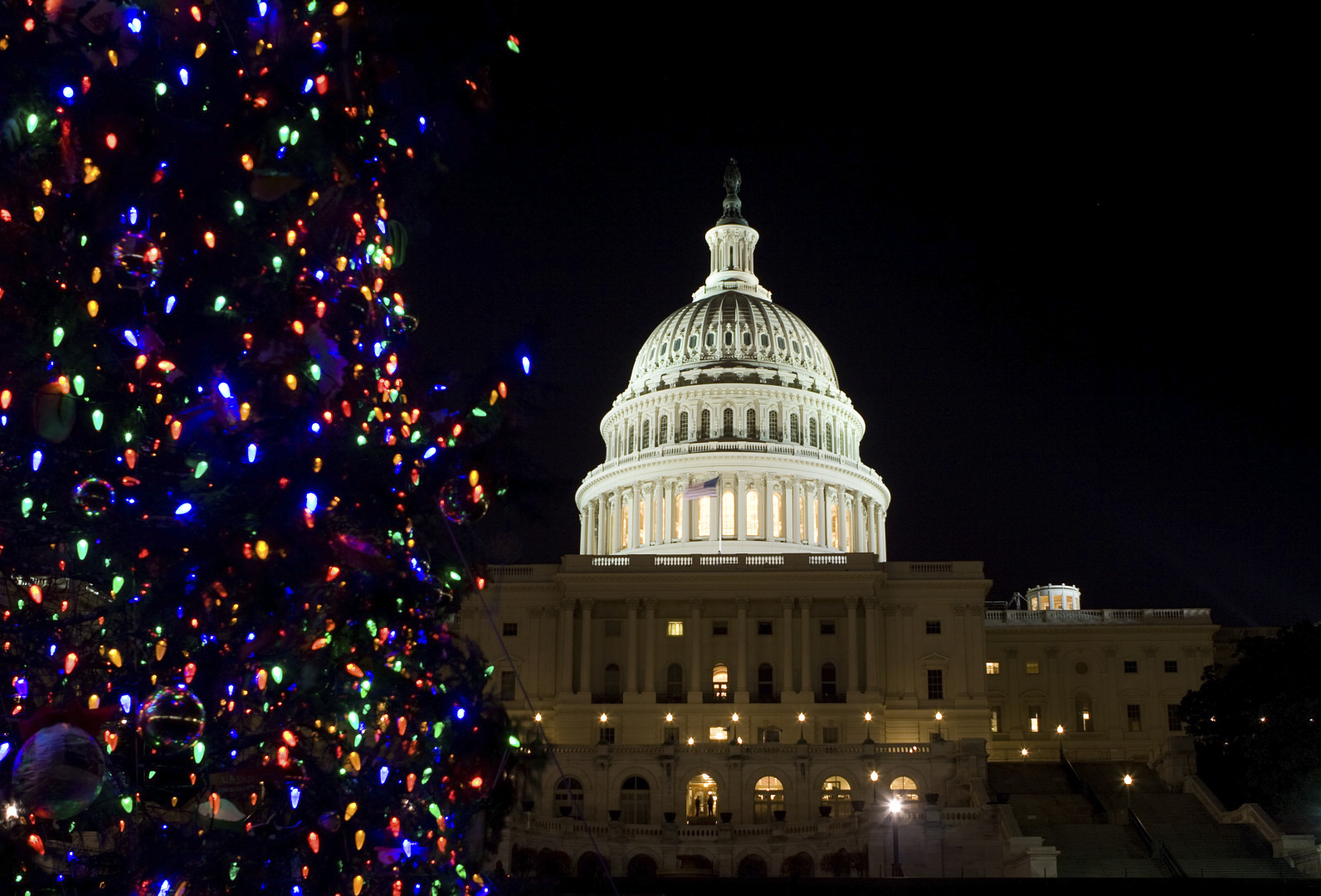Top congressional staffers are getting a queasy feeling of deja vu as delays on critical legislation in the House and Senate raise the prospect of a time crunch in December. Increasingly, some staffers say, they’re convinced they will be spending Christmas in the Capitol.
“We’re looking at a nasty December,” one Senate chief of staff lamented.
House Democratic efforts to slow fast-track trade authority favored by Republicans and President Obama likely mean the Senate will be forced to revisit the issue later this month. The Senate is bogged down in its own quagmire as Democrats pledge to block appropriations measures that adhere to sequester-level spending rules. Senate Democrats are expected to block the first of those bills, a defense appropriations measure, on Thursday.
The delays are consuming valuable floor time, which Senate Majority Leader Mitch McConnell is fond of calling the “coin of the realm.” And with only 30 legislative days left on the Senate’s calendar before the August recess, the number of must-pass measures are adding up.
Beyond trade and appropriations measures, the Export-Import Bank’s authorization expires at the end of June. The highway trust fund must be replenished in order to avoid work slowdowns during the August construction season. Before the end of the year, Congress will have to act to extend the life of the Federal Aviation Administration, preserve tax cuts set to expire and raise the nation’s borrowing limit to avoid a catastrophic default.
The Supreme Court may add to Congress’s workload if it rules subsidies under the Affordable Care Act unconstitutional. Republican leaders briefed members on plans to provide block grants to states affected, a plan that would require its own precious floor time.
A handful of prominent lobbyists on K Street say Congress could roll many of their must-pass items into a single bill, a kind of mini-omnibus that would distribute the political pain between the parties.
“It is possible to pass a big package which includes omnibus, Ex-Im Bank and others,” former Sen. Trent Lott (R-Miss.), now a lobbyist at Squire Patton Boggs, said in an email. “The trick is to put it together in a way that gives plenty of reasons to be for it, not against it.”
But spokespeople in House and Senate leadership offices say no discussions of such a mega-package have taken place. Several Hill aides expressed doubt that such a measure would be able to survive with so many coalitions opposing key elements, from labor groups opposed to fast-track authority to conservatives who don’t want the Export-Import Bank extended.
Even the FAA reauthorization is controversial: House Transportation and Infrastructure Committee chairman Bud Shuster (R-Pa.) is exploring a plan to partly privatize the nation’s air traffic control system. That plan has drawn sharp questions from Reps. Peter DeFazio (D-Ore.) and Rick Larsen (D-Wash.), concerned by the impacts on employee pension and union rules.
The time crunch makes it more likely, Hill aides said, that a series of deadlines will be overcome through a series of short-term extensions.
But even that prospect raises the specter of a legislative showdown: Senate Democrats earlier this week said they weren’t interested in a short-term funding solution for the highway trust fund in an effort to force Republicans to the table for budget negotiations.
Congress has a mixed record of avoiding last-minute sessions during the holidays in recent years, though leaders have used the threat of staying late to prod members to action. Congress adjourned on December 17, 2014, after Republicans seized control of the Senate in the midterm elections; they recessed on December 18, 2013, after passing a budget deal negotiated by Rep. Paul Ryan (R-Wis.) and Sen. Patty Murray (D-Wash.). Congress adjourned on December 17, 2011, too, after passing an omnibus government funding bill.
But the 2012 legislative year actually bled into 2013, when the House and Senate voted to avert the fiscal cliff on January 2, a day before the new Congress formally convened. And Congress didn’t leave the Capitol until December 22, 2010, after ratifying a nuclear treaty with Russia, extending Bush-era tax cuts and repealing the “don’t ask, don’t tell” ban on gays in the military.
This year’s mounting deadlines and legislative delays have staffers worried about a similarly long winter. The Senate chief of staff, who asked not to be named to offer a frank assessment, added he doesn’t plan to make travel arrangements this year.
